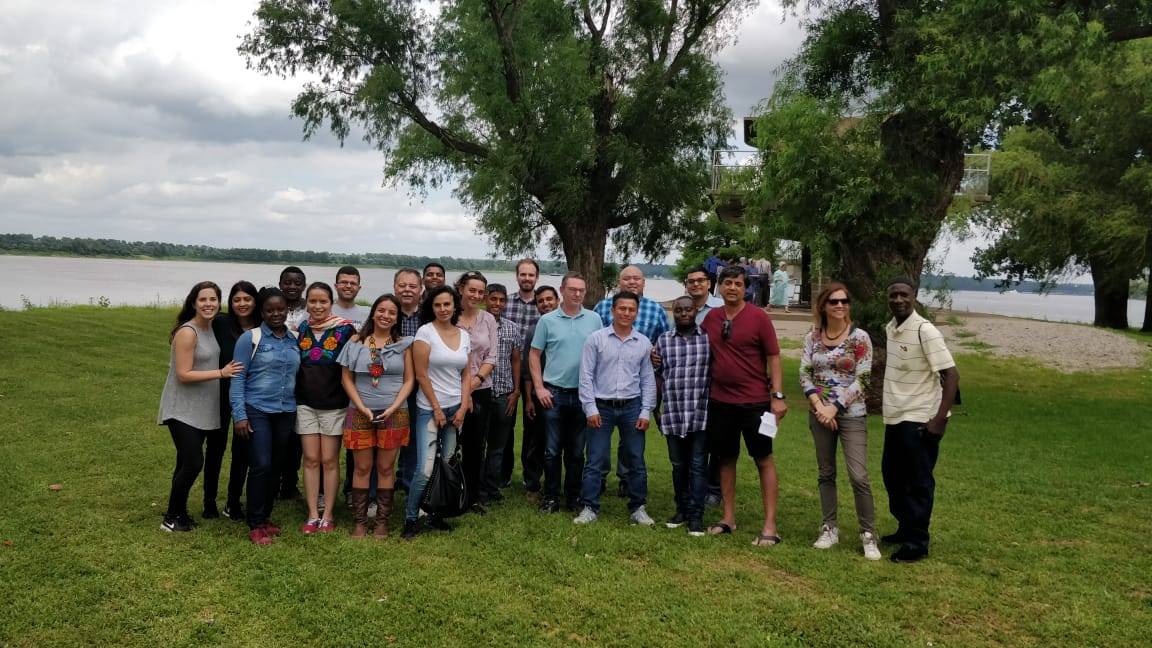Recently, I wrote about a faculty and student-led immersion trip to Tanzania as part of the Subsistence Marketplaces Initiative (SMI) based out of the University of Illinois Gies College of Business. This collaborative initiative once again brought people together from all over the world to one place. This time, in Champaign and Cairo, Illinois. Over the weekend, 55 practitioners, academics, and students from six continents and all sectors of society joined for one large purpose: to share ideas on improving the lives of those living in subsistence marketplaces.
Merriam-Webster defines subsistence as “the minimum food or shelter necessary to support life; a source or means of obtaining the necessities of life.” The purpose of this biannual conference is to “examine the intersection of poverty and marketplaces with a bottom-up approach that begins with micro-level understanding of life circumstances of consumers, entrepreneurs, and communities.” Part of what makes this conference so unique is that participants come from a wide range of societal sectors. We were privileged to be joined by a variety of people such as social entrepreneurs from India, gender and development practitioners in Mexico, community facilitator officers from Tanzania, university professors from the Netherlands and lawyers from Honduras and Bolivia, to name a few. This rich diversity of people and experiences allowed for an engaging and insightful four days of learning together at the iHotel and Conference Center. The conference began, however, with a trip to southern Illinois.
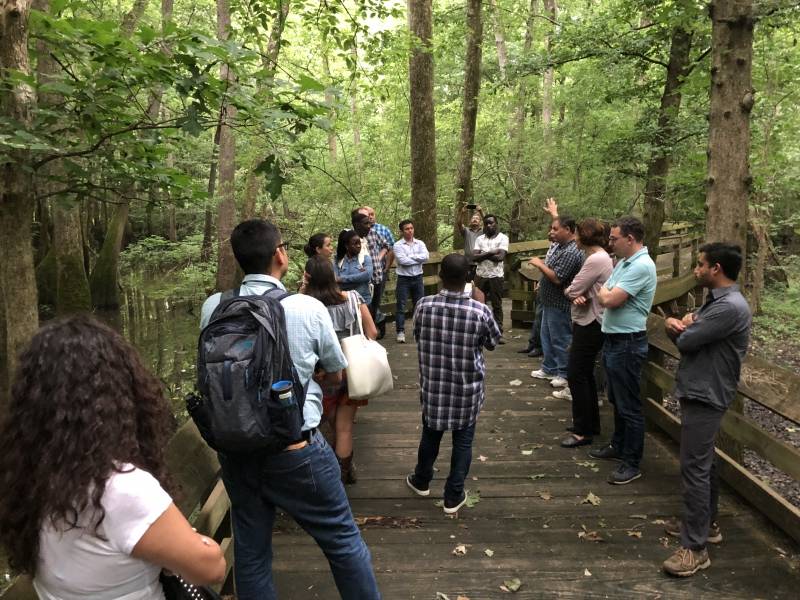 Participants learn from Ron Duncan about Southern Illinois in the wetlands on the Section 8 Woods Nature Preserve Boardwalk.
Participants learn from Ron Duncan about Southern Illinois in the wetlands on the Section 8 Woods Nature Preserve Boardwalk.
Often, when we think about those living in subsistence, we don’t consider these places to be in developed countries. Led by Associate Director of the SMI and expert on Southern Illinois context, Ron Duncan works to change this perception and bring a needed focus on subsistence marketplaces in the United States. Before the conference’s beginning, on Thursday, 22 of the participants caravanned to Cairo, Illinois, where Duncan led the discussion on Cairo’s drastically changed socioeconomic landscape. What was once a thriving regional hub situated on the Mississippi river, is now a town of less than 2,500 with one of the highest unemployment rates in the country. This experience sparked conversation and set the stage for discussion for the duration of the conference on means of reaching those living in subsistence marketplaces for poverty alleviation and improved livelihoods. Duncan challenged us to think beyond our preconceived notions of subsistence marketplaces and to identify barriers and points of entry to improve lives in different contexts.
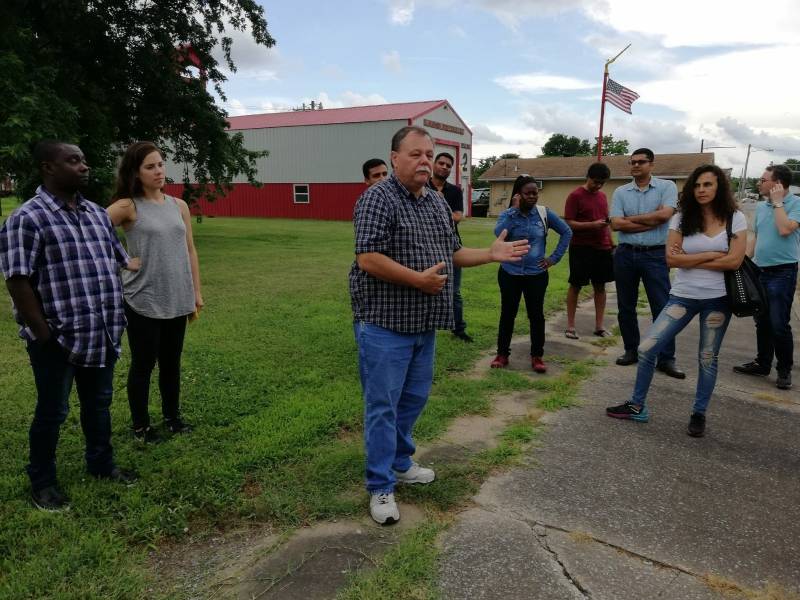
The conference and the time spent together was not only important for the sharing and learning of the field, but for areas of inspiration for many. Marlon Ac, UIUC Guatemalan graduate student said this about the conference: “The conference allowed us to meet people from different countries in different continents; people that are inspired and committed to have a better world by contributing with the development and improvement of people living in subsistence marketplaces.” The conference featured presentations, workshops, and discussion panels focused on education, nutrition and health, entrepreneurship, sustainability, public partnerships and technology in subsistence marketplaces.
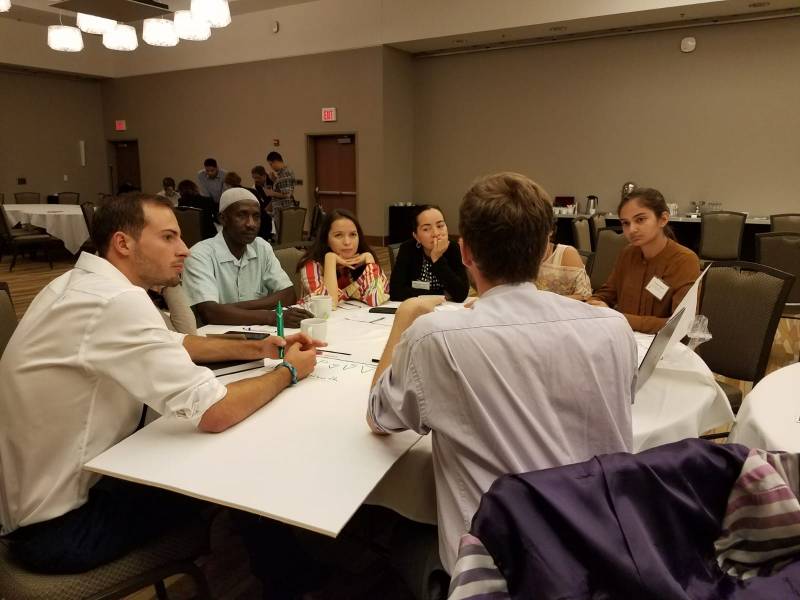 Participants engage in an ideation session at the IHotel’s conference room in Champaign.
Participants engage in an ideation session at the IHotel’s conference room in Champaign.
Ronika Chakrabarti of Lancaster University played a fundamental role in organizing and bringing together these global change makers. “As co-chair it was a privilege to organize, engage with and learn from a talented, inspiring and hard working community who are keenly committed to ideating, developing and implementing activities in subsistence contexts that can harbor sustainable change.”
For others, the conference provided a platform for professional development and seeing the world in a new lens. Luis Chavez, Field Coordinator for the Marketplace Literacy Education program in Honduras, said “In my case, I am grateful to have learned about subsistence marketplaces thanks to the Coursera platform and now I have attended and participated in two conferences in UIUC and one in India. When people from different backgrounds join together to try to understand these contexts, it is not a mere coincidence. It’s the work of committed people trying to leave a better world in the hands of future generations, in a better condition than we have found it. The conference makes that.” Chavez leads a Spanish blog about subsistence marketplaces for those interested in learning more found here.
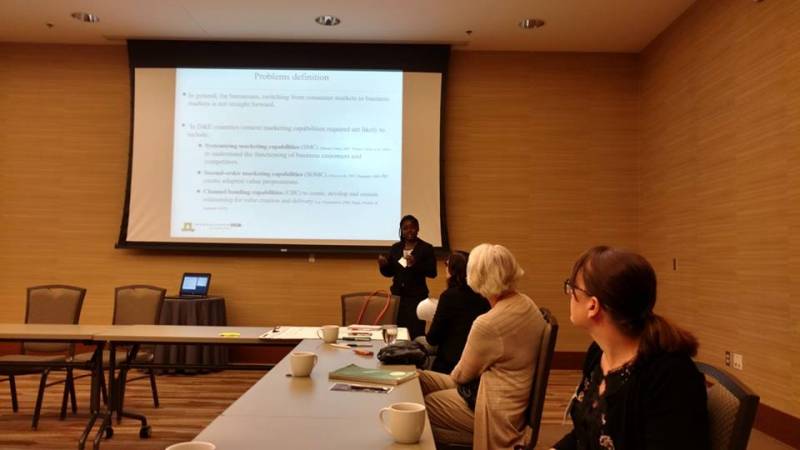
No matter the field or line of work you find yourself in, one major takeaway we can all learn from this unique setting is that great things can happen when people from all backgrounds are brought together. I think of an African proverb taught to me by a dear Rwandan friend that encapsulates what conferences like these are about: “If you want to go fast, go alone. If you want to go far, go together.” Thanks to the SMI and especially Professor Madhu Viswanathan for providing the platform and energy behind going far together.








